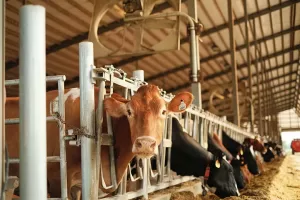Why use an evidence-based approach?
The case for why we should be vegan is very strong. Widespread adoption of a plant-based diet would significantly reduce the carbon emissions and other devastating environmental impacts caused by animal agriculture. Plant-based diets have been demonstrated to offer a number of health benefits, including a lower risk of heart disease, type 2 diabetes, stroke and various types of cancer. Perhaps most importantly, being a vegan is the most ethical choice in light of the enormous suffering and death we inflict on animals raised for food and other products, which is completely unnecessary when plant-based foods are readily available.
All of these benefits have led to an explosion in popularity of plant-based products and the vegan way of life, but we still have a long way to go before veganism becomes the norm, and the movement currently faces considerable backlash from the meat industry. Those who want to maintain the status quo or who would prefer not to re-think their own choices will be inclined to look for, and exploit, any vulnerabilities in our arguments and messaging around the benefits of veganism.
For this reason, it is crucial that we adopt an evidence-based approach when we engage in advocacy. This means that whenever we make a claim about a benefit to be gained by going vegan, we must ensure that it is grounded in the best available scientific evidence.
The dangers of misinformation
Unfortunately, misinformation is rampant and as a result, plant-based and vegan advocates sometimes make claims that are easily refutable, particularly regarding the health and environmental benefits of the shift to plant-based. This only gives ammunition to our detractors and gives others an easy excuse to dismiss our message.
For example, it is not uncommon to see a plant-based diet touted as a “miracle cure” for any number of illnesses or as a quick and easy weight loss solution. Of course, neither is true and such misleading claims may explain why celebrities and other prominent individuals sometimes temporarily embrace veganism, only to later renounce it, claiming that it didn’t meet their expectations or even caused harm to their health.
Similarly, while it cannot be doubted that animal agriculture is environmentally damaging and unsustainable in the extreme, advocates sometimes exaggerate the benefits to be gained by the shift to plant-based. For instance, a 2009 article used a flawed analysis to conclude that animal agriculture causes 51% of annual worldwide GHG emissions, and this number has been repeatedly cited by vegan advocates. An even more inflated estimate has been making the rounds in the last few years. Such exaggerated claims might make the plant-based shift appear to be a silver bullet that will solve the global climate crisis. In fact, it is well-accepted that the number is between 15% to 25%, which is still an enormous contribution and one that must be addressed along with the other major contributors, including our reliance on fossil fuels.
5 tips for using an evidence approach in your own advocacy
The facts are on our side. It is unnecessary to inflate or exaggerate the benefits of veganism, and when we do so, we risk losing credibility in the eyes of the public and working against the outcome we want to achieve. Here are some tips for using an evidence-based approach to your own advocacy:
- Before you share an article, be sure to check that it comes from the most reliable source available. Scientific claims should be based on research published in peer-reviewed academic journals. It is very easy for individuals and organizations with no relevant expertise to create articles that appear “scientific” despite the content being incorrect.
- Make sure you understand the background of the person making a claim. Is this person a scientist recognized in the relevant field, or do they appear to have an ulterior motive such as profiting from their own product or service? Sometimes individuals use the title “Dr.” in order to appear more credible, despite having attained their doctorate degree in an unrelated area of study, or not having one at all.
- If you are not comfortable evaluating scientific literature, consider starting with the ethical reasons for veganism in your advocacy. Compassion for animals is easily understandable without reference to any statistics!
- Check out and share the materials on our website. Earthsave Canada takes a rigorous scientific approach in our public education; we do not make any claims without carefully considering and citing the appropriate sources.
- If you’re unsure about a claim or can’t find the information you’re looking for, send us an email and we will do our best to help!
Photo by Charles Deluvio on Unsplash








